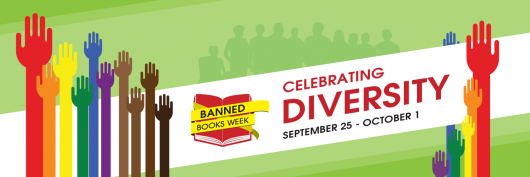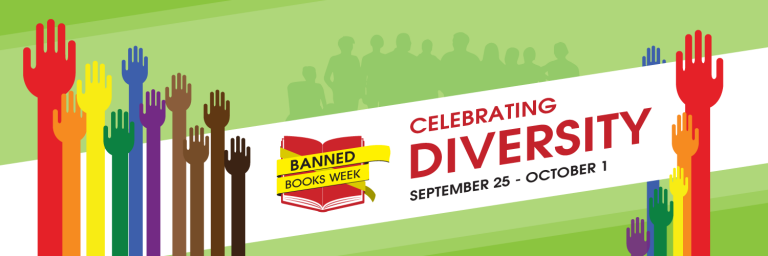 Welcome to Banned Books Week 2016! 7 days devoted to our freedom and right to read, something that’s at the heart of NCAC’s and the Kids’ Rights to Read Project’s mission. But, the critics say, no one even bans books anymore. So what’s the point?
Welcome to Banned Books Week 2016! 7 days devoted to our freedom and right to read, something that’s at the heart of NCAC’s and the Kids’ Rights to Read Project’s mission. But, the critics say, no one even bans books anymore. So what’s the point?
In America, Book banning, or indeed burning, of the sort found in the Third Reich or Stalin’s Russia is- thankfully- a fact of history (although it’s worth remembering the regimes around the world in which this kind of behavior is not such a distant memory) . However, promoting and fighting for the freedom to read today in the U.S. is a more subtle, but no less important, battle. For more info and for a good primer to the significance of Banned Books Week, and also into the day-to-day work of the KRRP, check out our handy, printable, Tales of the Crypt-themed “Banned Books Myths” flyer.
Key NCAC Banned Books Week Resources
Each day this week, NCAC will be releasing and publicizing new content as part of our Banned Books Week actvities. This year the theme is diversity, so chosen because of the disproportionate number of challenges on books featuring characters from diverse social, ethnic and racial background. So, to kick the week off on Monday, read an editorial, published in the Culture section of Salon, by our Director of Programs Svetlana Mintcheva, that looks to untangle the hot debated topic of “cultural appropriation” in fiction. The article explores the assumptions behind the question: “Who can speak for whom?” and argues that, above all else, we need more writing about those whose experience is different from ours, not less.
On Tuesday, read NCAC’s interview with Kate Messner, a children’s author whose new book, The Seventh Wish, drew controversy upon release for its touching on the topic of substance abuse. At the beginning of summer, NCAC supported Kate when a Vermont school abruptly cancelled a speeching arrangement over fears about the book’s subject matter. NCAC advocated for every student’s right to access a broad range of experience in their reading.
“Vile” and “pornographic,” were words Chesterfield parents used to describe Coe Booth’s Tyrell, a book about the inner-city life of a young African-American teen, which was at the center of NCAC’s biggest summer book challenge. On Wednesday read our interview with the YA author, who discusses the incident and why kids should access diverse perspectives that are dissimilar to their own in the books they read. KRRP will publish its annual recap of top book challenges on Thursday in the form of a printable handout. Finally, on Friday, read a blog post co-authored by NCAC Executive Director Joan Bertin, originally published on the School Library Journal (SLJ), comparing the results of two surveys, one conducted by NCAC and the National Council of Teachers of English (NCTE) and the other by SLJ, on the most common reasons and responses to book challenges in schools and libraries.
Visit the Banned Books Week website for information on special events occuring in bookstores and libraries around the country and visit the other sponsor organization’s sites for their individual offerings.
Then, why not contribute by reading a banned book? NCAC staff has compiled a list of 40 challenged books to help you find one.


